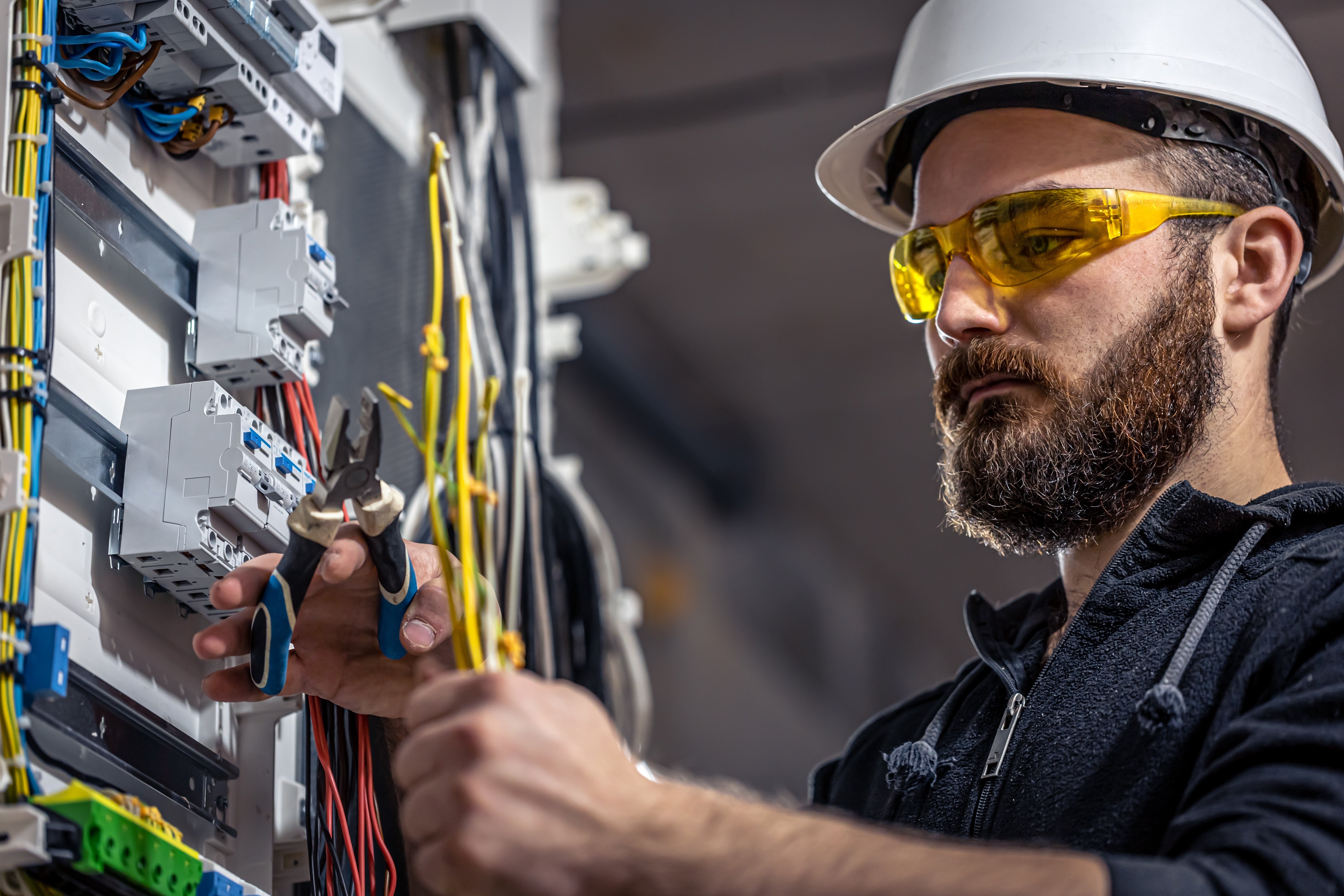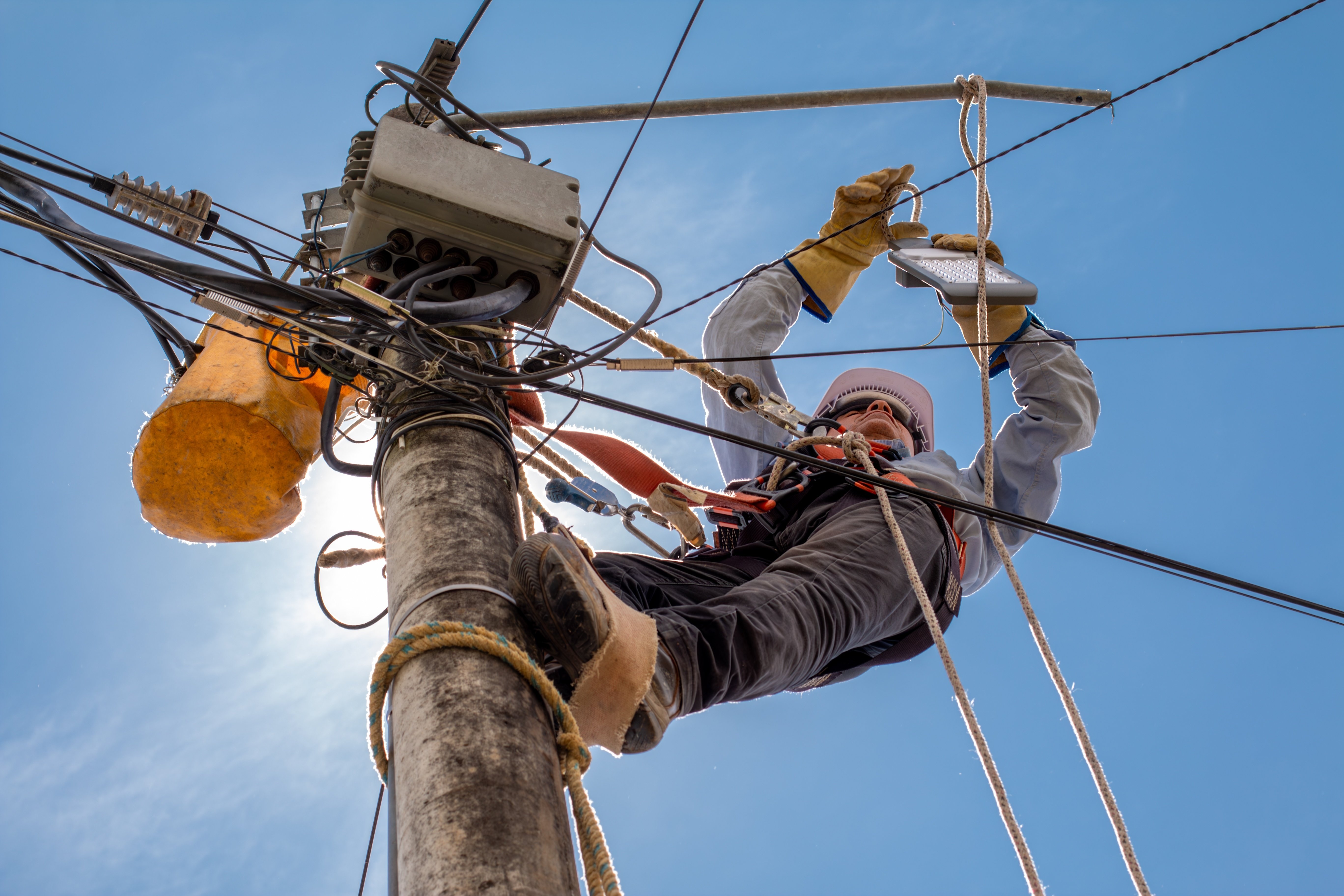What is an Industrial Electrician

Electricity is the backbone of modern industry, powering everything from machinery to automation systems. Among the professionals responsible for maintaining this power are industrial electricians, specialists who ensure that electrical systems in industrial environments function efficiently and safely. But what exactly does an industrial electrician do? How do you become one? What are the job prospects in this field? With technology advancing rapidly, the role of industrial electricians is becoming more important than ever. Let’s take a closer look at this vital profession.
Quick Links
-
What Does an Industrial Electrician Do?
-
How to Become an industrial Electrician
-
Industrial Electrician Apprenticeship: What You Need to Know
-
Industrial Electrician Jobs: Career Outlook & Work Environments
What Does an Industrial Electrician Do?
An industrial electrician is a skilled tradesperson who installs, maintains, troubleshoots, and repairs electrical systems in industrial settings. Unlike residential or commercial electricians, industrial electricians work in environments such as factories, power plants, processing facilities, and manufacturing plants where heavy-duty electrical equipment is in use.
Key Responsibilities of an Industrial Electrician:
- Installation of Electrical Systems: Industrial electricians install and maintain wiring, control panels, and electrical equipment in large industrial settings.
- Maintenance and Troubleshooting: They perform routine inspections and maintenance to ensure electrical components are operating correctly.
- Reading Blueprints and Schematics: Industrial electricians must understand complex electrical diagrams to install and repair equipment accurately.
- Working with Programmable Logic Controllers (PLCs): Many industrial electricians handle PLC systems, which are essential for automation in manufacturing plants.
- Ensuring Safety Compliance: Adhering to OSHA and National Electrical Code (NEC) regulations is a critical part of their job to ensure a safe work environment.
- Upgrading and Retrofitting Systems: Industrial electricians often modernize existing electrical systems to improve efficiency and meet updated safety regulations.
- Emergency Repairs: They must respond quickly to breakdowns and power failures to minimize downtime and maintain production flow.
How to Become an Industrial Electrician
If you’re interested in working as an industrial electrician, you’ll need a combination of education, training, and hands-on experience.
Step 1: Obtain a High School Diploma or GED
Most electrical programs require applicants to have a high school diploma or GED. High school courses in math, physics, and shop classes provide a good foundation for an electrician career.
Step 2: Enroll in an Industrial Electrician Training Program
Vocational schools and technical colleges offer programs that cover electrical theory, blueprint reading, motor controls, and safety procedures. These programs typically last one to two years and provide a solid foundation for entering the workforce.
Step 3: Complete an Industrial Electrician Apprenticeship
An industrial electrician apprenticeship is a crucial part of the training process. These apprenticeships typically last four to five years and include both classroom instruction and hands-on work experience under the supervision of licensed electricians. During an apprenticeship, trainees:
- Learn about electrical codes and safety regulations
- Gain experience with troubleshooting and installing electrical systems
- Work on real-world industrial electrical projects
- Develop problem-solving skills in electrical diagnostics
Step 4: Obtain a License or Certification
Depending on the state, industrial electricians may need to pass a licensing exam that tests their knowledge of electrical codes, safety regulations, and industry standards.
Step 5: Gain Work Experience and Continue Learning
After completing training and obtaining a license, new electricians can start working independently or for an industrial company. Many choose to further specialize in areas such as automation, renewable energy, or robotics to increase job opportunities.

Industrial Electrician Apprenticeship: What You Need to Know
The industrial electrician apprenticeship is the most effective way to gain hands-on experience and develop essential skills.
What Do You Learn in an Apprenticeship?
During an apprenticeship, trainees acquire skills such as:
- Electrical system troubleshooting
- Reading and interpreting blueprints
- Working with high-voltage equipment
- Understanding programmable logic controllers (PLCs)
- Applying electrical safety regulations
- Mastering electrical instrumentation and automation
- Gaining proficiency in energy management systems
Advantages of an Industrial Electrician Apprenticeship
- Earn While You Learn: Unlike traditional college degrees, apprenticeships offer paid, on-the-job training.
- Hands-on Experience: Apprentices get real-world experience in industrial environments.
- Job Placement Opportunities: Many apprenticeships lead to full-time employment with the same company.
- Higher Earning Potential: Journeyman and master electricians typically earn higher wages after completing an apprenticeship.
- Career Growth: Advanced certifications and experience can lead to supervisory roles and specialization in high-demand sectors.
Industrial Electrician Jobs: Career Outlook & Work Environments
Industrial electricians have a wide range of career opportunities across various industries.
Where Do Industrial Electricians Work?
- Manufacturing Plants: Maintaining production line electrical systems
- Power Plants: Ensuring electrical grid stability
- Oil Refineries: Working on power distribution systems
- Construction Sites: Installing electrical systems in new industrial buildings
- Automotive Plants: Managing automated assembly line electrical components
- Aerospace and Defense Industries: Maintaining complex electrical networks in high-tech environments
Key Responsibilities of an Industrial Electrician on the Job
- Diagnosing electrical system failures and performing repairs
- Installing and maintaining electrical panels and machinery
- Performing preventative maintenance to reduce downtime
- Working with automation and control systems
- Adhering to strict safety protocols to prevent workplace hazards
- Overseeing power distribution in large-scale industrial operations
- Implementing energy efficiency solutions to reduce operational costs
Conclusion
Becoming an industrial electrician is a rewarding career choice for those who enjoy working with electrical systems, problem-solving, and working in industrial settings. The combination of technical knowledge and hands-on training make it an attractive career path for many individuals.
As industries continue to embrace automation, robotics, and energy-efficient technology, the role of industrial electricians will only become more critical. Ready to take the first step? Learn more about our Industrial Electrician training programs here!
Industry Knowledge
Welcome to the Advanced Technology Institute's Blog, your resource for industry insights and discussions on technologies shaping the future of automotive, heavy vehicle, hvac, welding, and other related career paths.
Explore how ATI's curriculum and hands-on learning opportunities can propel your career in the tech-driven world.


.jpg)